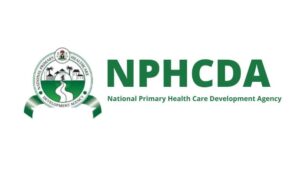COVID-19: West African Pharmacists lament drug, vaccine importation problems, sue for local production
By Moses Adeniyi
Pharmacists within the West African sub-region have lamented what they have described as the strains of “huge dependence on drug importation” informing “problems of substandard and falsified medicines” in the sub region.
This is just as they have highlighted the significance to commence talks with relevant stakeholders including regulators, operators and government agencies on the need to facilitate the productivity of manufacturing capacity in the pharmaceutical industry within the region.
The professionals under the aegis of the West African Postgraduate College of Pharmacists, an Agency of the West African Health Organisation in collaboration with Pharmaceutical Society of Nigeria, believe the move was sacrosanct to avert a looming medicine crisis during any case of health emergency as experienced during the COVID-19 pandemic.
Professionals who spoke to news men on the heels of the 34th Annual General Meeting & Scientific Symposium of the College with the theme “Medicine Security in the West African Region: Matters Arising,” agreed the experience of the COVID-19 pandemic has necessitated the need for local production of drugs in the West Africa sub-region.
At a Press conference to herald the 34th AGM and Scientific Symposium slated for Monday, 16th to Thursday, 19th, the president of the West African Postgraduate College of Pharmacists (WAPCP), Prof. (Mrs), Cecilia Ihuoma, said the theme was carefully selected as it captures “all we need to foster the unparalleled cooperation between the pharmaceutical industries, regulatory bodies, drug distributors and the end users.”
She lamented “the West African region is fast becoming a dumping ground for all manners of Pharmaceutical products.”
According to her, “drug importation has sorrowfully gifted the region with problems of substandard and falsified medicines.”
“The huge dependence on importation, which has negatively impacted local production, is attributable to lack of basic research and development, including insufficient capacity in pharmaceutical analysis and bio-analytical techniques in the academia and the industry.
“Also inadequate training in current good manufacturing practices (cGMPs) and non-existence of Active Pharmaceutical Ingredient (API) or excipients manufacturing facilities,” she decried.
According to her, the vision of WAPCP is to be a regional/international centre of excellence in training and research for post graduate pharmacy education and practice.
“And by extension, to promote academic and professional competencies of Pharmacists.
“As a College, we remain committed to high academic and professional standards: this has, in no small measures, placed our graduates far above others in terms of skills and competences in every sector of health,” she said.
She disclosed the college has commenced the integration of Francophone counterparts into WAPCP.
“This collaboration, reunion and harmonization between the Anglophone and Francophone members will provide stimulating unity and focus on opportunities that will advance the global practice of pharmacy,” she said.
Members of the body include Ghana, Nigeria, Gambia, Sierra Leone, Liberia. Among others, Highlighted on agenda for the AGM include formal opening/investiture of Fellows.
In her remarks, the Chairman WAPCP, Nigerian Chapter, Margaret Obono, said the theme of this year’s conference host by Nigeria, was informed by the strains of medicine scarcity which accompanied the COViD-19 lockdown when the international borders were closed.
“We must begin to plan to manufacture our drugs here in Nigeria and other West African Countries.
“We are doing this to protect the common man, so that if any one is sick, he can get what he needs, when he needs it, so that we don’t lose too many people.
“We need to let the Government know that there is enough of sending our currencies outside. They should empower pharmacists and drug manufacturer here in Nigeria Nigeria and other West African Countries so that they would have self sufficiency when it comes to medicines,” she said.
The Secretary General, WAPCP, Prof. Ibrahim Oreagba, lamented that the proliferation of substandard medicines was a phenomenon demanding pressing attention.
On drug security, he said: “When we talk about medicine security, basically you are talking about availability, local production, quality and minimising adverse drug reactions and ensuring drugs are secured.
“Looking at the COVID-19 situation, we found ourselves in a situation where we had to depend on other countries for our vaccines and that shouldn’t be the case if we had developed our pharmaceutical sector to an extent to ensure that we have medicine security,” he said.
According to him, the college has facilitated development of schools of pharmacy, harmonised various drug laws as well as ensuring uniformity in practice across the West African sub region.
According to him, the various specialties of the college have facilitated training of specialists who according to him, have “become assets in various sectors in the health industries.”
In her remarks, the Chairman, Conference Planning Committe, Pharm. Ngozi Onuorah, said the subject of medicine security remains significant to national security profile.
“If you don’t have medicine to treat diseases, then you cannot be assured of the health of the populace,” she said.
According to her, the significance of the conference informed the importance of having participation of stakeholders from different fora in the health sector.
She mentioned that beyond local production of drugs, the subject of producing “medicines that are efficacious” was pertinent.
“It is not just to manufacture drugs, it has to deliver what it is supposed to deliver,” she averred.




